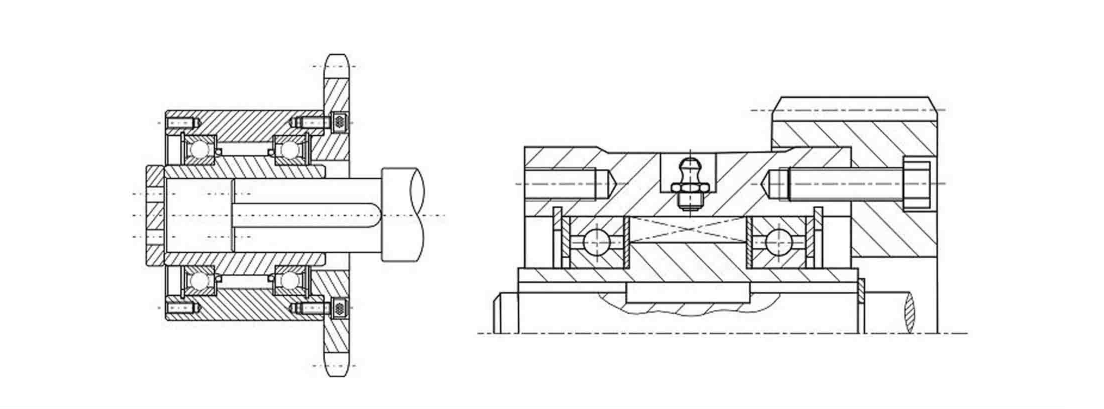Dec . 17, 2024 18:39 Back to list
bearings for small electric motors manufacturer
Bearings for Small Electric Motors An Essential Guide for Manufacturers
Small electric motors are ubiquitous in today’s technology-driven world, powering everything from household appliances to advanced industrial machinery. At the heart of these electric motors lies a crucial component bearings. Bearings play a vital role in determining the performance, durability, and efficiency of electric motors. For manufacturers specializing in small electric motors, choosing the right bearings is a critical factor that can significantly impact the overall quality of their products.
Understanding Bearings
Bearings are mechanical components that enable rotational or linear movement between two surfaces while minimizing friction. In electric motors, they support the rotor’s shaft, allowing it to spin smoothly within the stator. The main types of bearings used in small electric motors include ball bearings, roller bearings, and sleeve bearings. Each type has its specific advantages and is suitable for different applications.
1. Ball Bearings Ball bearings are one of the most commonly used bearing types in small electric motors. They consist of a series of spherical balls positioned between two rings, or races. These bearings provide low friction and can handle both radial and axial loads, making them ideal for applications where space is limited.
2. Roller Bearings Roller bearings utilize cylindrical rollers instead of balls to support the load. This design allows for higher load capacity and improved stability, making them suitable for more robust applications. However, they can be bulkier than ball bearings, which might be a consideration for compact motor designs.
3. Sleeve Bearings Also known as bushings, sleeve bearings are simple cylindrical designs that provide support by allowing the shaft to rotate against a lubricated surface. These bearings are often used in applications where noise reduction is crucial, as they operate more quietly than their ball and roller counterparts.
Key Considerations for Bearing Selection
When manufacturing small electric motors, several factors should be considered when selecting bearings
bearings for small electric motors manufacturer

1. Load Capacity Bearings must withstand the operational loads they will experience. Manufacturers need to calculate the expected radial and axial loads to choose bearings that can handle these stresses without premature failure.
2. Speed Rating Different bearings have varying maximum speed ratings. Choosing a bearing with an appropriate speed rating ensures that it can operate efficiently without overheating, which can lead to failure.
3. Lubrication Proper lubrication is essential for minimizing friction and wear in bearings. Manufacturers have options for grease, oil, and even sealed bearings that come pre-lubricated. The choice of lubrication method depends on the application’s operational conditions, including temperature, speed, and environment.
4. Material Selection Bearings are made from various materials, including steel, ceramic, and plastic. The choice of material affects the bearing's strength, weight, and resistance to environmental factors such as moisture and temperature changes.
5. Cost While performance is critical, manufacturers must also consider the cost of bearings. Striking a balance between quality and affordability is essential to remain competitive while ensuring product reliability.
The Future of Bearings in Electric Motors
As technology advances, manufacturers are exploring new materials and designs that enhance bearing performance. Innovations, such as hybrid bearings that combine ceramic and steel components, offer improved durability and reduced friction. Additionally, advancements in lubrication technology are contributing to longer-lasting bearing performance.
In conclusion, bearings are a foundational component in the design and operation of small electric motors. Manufacturers must carefully consider their options to select bearings that meet their specific needs, striking a balance between performance, cost, and reliability. With the right choice of bearings, manufacturers can enhance the lifespan and efficiency of their electric motors, ensuring customer satisfaction in a competitive market. As the demand for small electric motors continues to grow, so too will the importance of high-quality bearings in the manufacturing process.
Latest news
-
25MM 2 BOLT UCFLX05-14 Flange bearing unit( oval)
NewsMar.07,2025
-
4 bolt UCF 200 series Pillow block bearings
NewsMar.07,2025
-
25MM 2 BOLT UCFLX05-14 Flange bearing unit( oval)
NewsMar.07,2025
-
UCF216-50 4-Bolt Flange Housing Square Bearing
NewsMar.07,2025
-
25MM 2 BOLT UCFLX05-14 Flange bearing unit( oval)
NewsMar.07,2025
-
spherical roller bearing material exporter
NewsMar.07,2025





